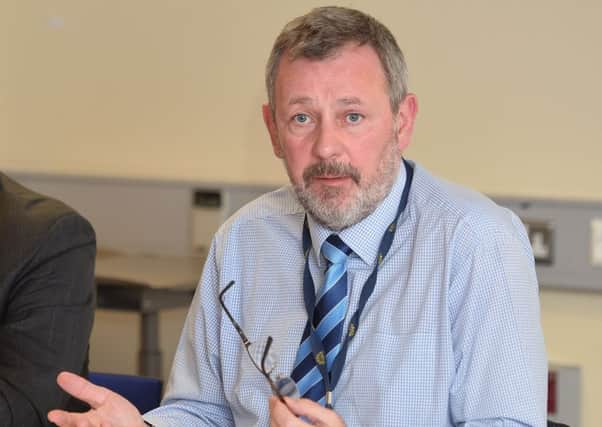‘We don’t have enough money to run this health service’, says top civil servant


Richard Pengelly, Permanent Secretary at the Department of Health, told the BBC: “We can’t continue the way we are.”
He added: “We have enough money to run a world class health service, but we don’t have enough money to run this health service.”
Advertisement
Hide AdAdvertisement
Hide AdMr Pengelly made those comments as part of the ‘Spend It Like Stormont’ documentary, made by the Below the Radar production company and the investigative news website The Detail.
He added: ““At the moment to run the same service this year as we did last year and next year, it’s about 6% increase per annum.
“If we continue on that trajectory, within about 20 years the health service will need virtually all the money that’s available to the executive.”
The permanent secretary for health had recently warned that it would cost as much as £1 billion to tackle Northern Ireland’s waiting list crisis.
Advertisement
Hide AdAdvertisement
Hide AdAnd in recent weeks, following the publication of the latest hospital waiting time statistics showing the continued growth of the backlog faced by patients, the Department of Health has warned that “significant and sustained investment” will be needed.
The latest waiting time statistics, recorded on March 31, show that over a third of patients in Northern Ireland are now being forced to wait more than a year to see a consultant — 97,851 in total.
Meanwhile, the number of people waiting more than a year for a hospital bed reached 22,350 on March 31 this year — a huge rise on the figure of 16,454 at the same time last year.
After those figures were published last month, a spokesperson for the department said: “Waiting times have been escalating since 2014, as pressures on the health budget meant limited funding was available to suppress waiting time growth.
Advertisement
Hide AdAdvertisement
Hide Ad“Significant and sustained investment will be needed to address the backlog.
“In addition, longer term transformation reforms will be vital to make sure the problem does not recur.”
Speaking to the BBC, Mr Pengelly said the department does not see closing hospitals as a solution.
“None of our work will involve taking a hospital and saying: ‘Do we need that hospital’,” he said.
Advertisement
Hide AdAdvertisement
Hide Ad“It is saying that within that environment, there are a range of services we could offer.”
He added: “It may mean that members of the public have to travel a little bit further and in some cases a little less.
“You can’t replicate every service in every location.”